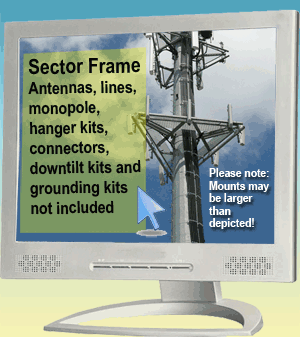|
Wireless industry web sites might have to put their pitch in their pictures pitch in their pictures
September 14, 2006 - I didn't need coffee this morning for my morning jolt. It was provided after reading an article about a lawsuit being brought by the National Federation of the Blind against Target.
A federal judge - this is no joke - actually ruled last week that the nation's second largest retailer can be sued because its website is inaccessible to the blind.
Although this is a headline writer's Nirvana: Target targeted, Group shoots at bullseye logo, Every picture must be worth and have a thousand words - it's also a classic case of our legal system being out of touch.
It ought to be in pictures
The plaintiffs have charged that target.com fails to meet the minimum standard of web accessibility, including alt-text (text embedded beneath graphic images, allowing screen readers to vocalize a description of the image to a blind user), and inaccessible image maps and other graphical features, preventing blind users from navigating and making use of all of the functions of the site.
Also, because the site requires a mouse to complete a transaction, blind Target customers are unable to make purchases on target.com independently, the suit charged.
There are currently no legal requirements for web designers to provide blind-friendly access. If it costs a company more to attract the extra small percentage of customers with or without disabilities than those customers provide in business, then, yes, it might be good business to disregard those customers. A tower manufacturer will not purchase advertising in an avian mortality newsletter for just this reason.
On the other hand, if a company is pointlessly costing itself business by failing to adopt preferred handicap access coding techniques, then that company will lose business to superior websites, and they will either change or go out of business. The market has a wonderful way of fixing problems without government intervention.
Although Generation Y people were breastfed on modems, the internet is still a relatively young medium and wireless businesses are just beginning to appreciate its potential to attract new clients. An NFB spokesperson says that the organization wants to expand any favorable ruling to all business web sites.
While some distributors, component and other manufacturers have great navigation and resources on their websites, most tower-industry companies have static sites, some as limited as one tower maintenance company whose home and only page is emblazoned with "Call us for all your tower needs!" Unfortunately, they don't provide a telephone number, but they graciously provide a Hotmail address which will clearly have Bechtel begging at their door. Whoops! No address on the site for their door.
So, if the legal gang that says it can shoot straight, can, and does win the suit, I'm hoping that there is not a shotgun approach by other attorneys seeking their just rewards.
Then all tower-related sites that sell products will have to provide a detailed explanation underneath promotional photographs such as: "Here we have a climber that looks like he and the boys might have had one too many toddies last night. He is gingerly mounting a Nextel antenna on a t-frame that has some very noticeable galvanizing spurs that could cause a laceration. It is attached to a monopole that may have some weld issues at the flange. You'll also note that the downtilt may be a few degrees off and the technician appears to be tied off to an anchorage point that does not meet Revision G recommendations."
It will also require component manufacturers and distributors to provide extensive details of the product being featured such as: "Please note that this lightweight mounting frame featured by Acme Accessories looks exactly like the one copied by Bucky's Backyard Mounts whose design was duplicated by Mr. T-Frame overnight and spirited away the next day by four other competitors."
The Americans with Disabilities Act of 1990 was long overdue and now guarantees equal opportunity for individuals with disabilities, but the NFB's suit is a little before its technical time and akin to Captain John Smith requiring electrically operated personnel elevators in the colonists' first pole barns.
Target said it would continue fighting the lawsuit. Webmasters continue to shake their heads.
--CEL
|